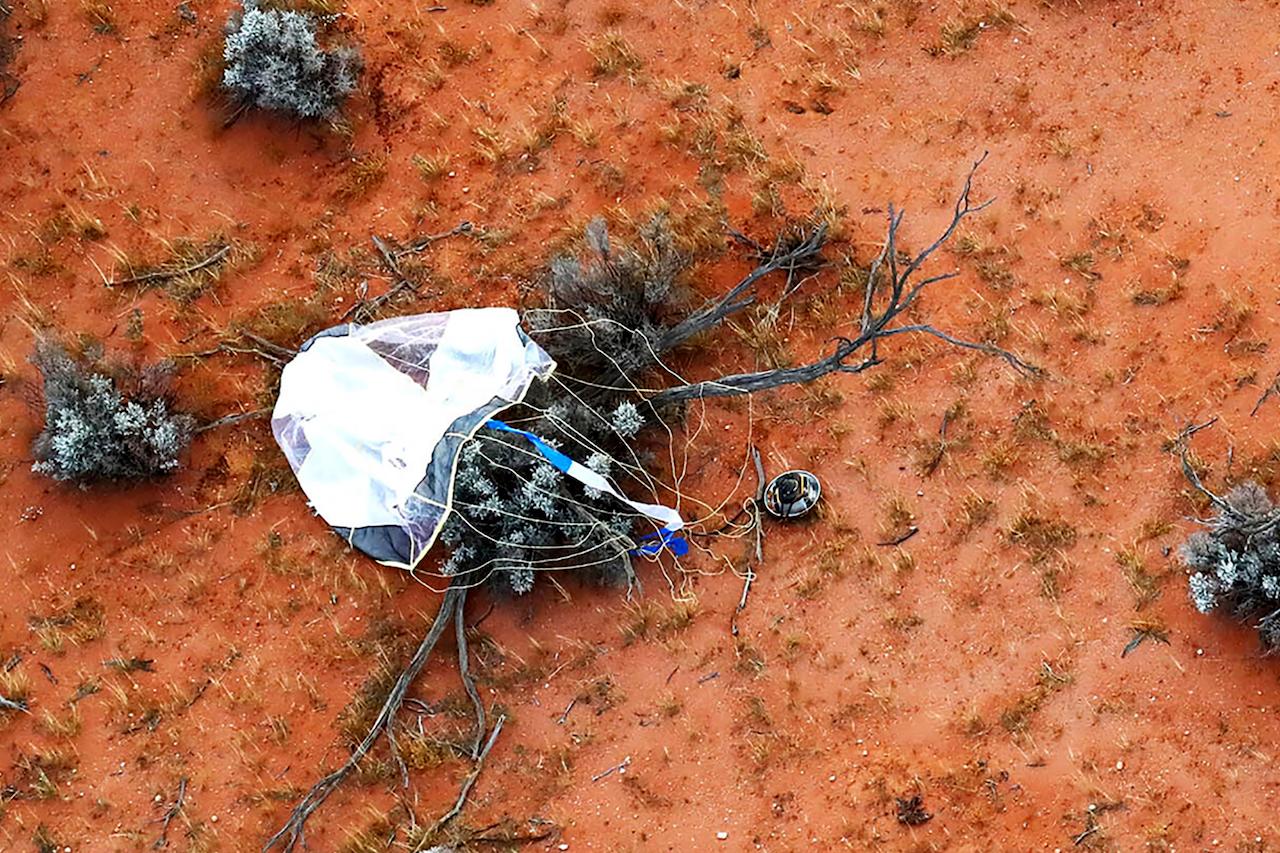Japan lands asteroid samples safely on Earth
Japanese spacecraft Hayabusa-2 spent more than a year investigating asteroid Ryugu.
Just In
A small container with a payload of asteroid rock and dust landed safely in Australia on Saturday night.
The metal cannister with material from an asteroid called Ryugu parachuted down near Woomera in South Australia after being fired through the Earth’s atmosphere by its “mother ship” Hayabusa-2.
Satoru Nakazawa, from the Japan Aerospace Exploration Agency (Jaxa), who was part of the operation at Woomera, said the recovery team found the container lying on sandy ground, with its parachute draped over a tree.
The samples were collected by Japanese spacecraft Hayabusa-2 which spent more than a year investigating Ryugu before returning to a brief Earth orbit.
As it neared Earth, Hayabusa-2 released the capsule with the samples and then blasted itself off in another direction, on its next mission. It will now travel to a much smaller, 30m-wide asteroid, reaching it in 2031.
When the recovery team found the capsule, it was taken to a “quick-look facility” for inspection and declared to be in “perfect” shape.
Dr Yuichi Tsuda, project manager for the mission, said at a press conference on Sunday in Sagamihara, Japan. “We collected the treasure box. There was no damage to the container.”
The 16kg capsule will now be airlifted to Japan, where it will be transported to a curation chamber at Jaxa in Sagamihara for analysis and storage.
Dr Hitoshi Kuninaka, director general of Japan’s Institute for Space and Astronautical Science said, “Regarding Hayabusa-2, we did everything according to the schedule – 100%. And we succeeded in sample return as planned. I think the dream has come true. As a result, we can move on to the next stage in space development.”
The next stage includes a mission called MMX, which will aim to bring back samples from Mars’ largest moon Phobos.
Subscribe to our newsletter
To be updated with all the latest news and analyses daily.
